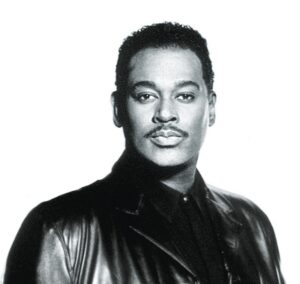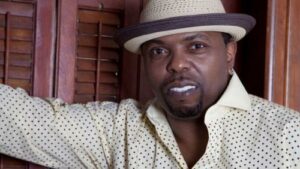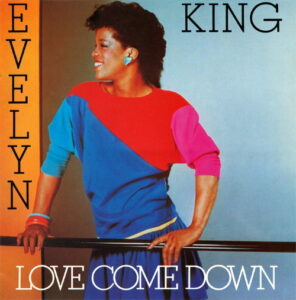Two albums in, James Fortune has emerged as one of his genre’s strongest inspirations. He serves as a multi-faceted general over his nine-member army, FIYA, usually possessing an iron-clad grip on ferocious drum beats with whisper-like background voices. On top of the heavy rhythms, Fortune usually raps his way Kirk Franklin style through his performances. Where Fortune struggles as a front man, talented guest stars often come in and help save the day. Bearing a strong and obvious resemblance to talking emcees like Kirk Franklin and another Houston gospel star, Gary Mayes, Fortune’s formula works well on the more urban-ish episodes on his albums, but it doesn’t entirely work for an 80-minute program. This is where Fortune lacks as an album’s magnet. As a singles’ guy, he has the Midas touch, particularly with "You Survived" and 2008’s gospel smash "I Trust You." That said, You Survived and its follow-up, The Transformation, as individual discs left more to be desired.
His latest project, Encore, feels like a hurried attempt to cash in on the craze that was "I Trust You." However, it does a better job at fixing some of Fortune’s previous lapses than other FIYA projects. The lyricism of the uptempo cuts congeal with the bursting beats and club-like ferocity ("Battle Is Over," "Can’t Stop," Bounce Back") better than before. Spirited offerings conducive to the delicious contemporary gospel songbook like the sing-a-long jitter "It Was You" and "You Are Here" establishes an easy, accessible path into Encore’s presentation.
As a whole the ballads, Fortune’s proven advantage, gleam with a reverent polish that reveals he’s becoming an exceptional and dependable songwriter."I Need Your Glory" majestically written as an intense worship ballad and "Draw Me," featuring the sweet vocal embraces of Anaysha Figueroa, are modest at best, but stand as delightful additions to the mostly-funky set. The title track, although a bit obvious as a restructuring of "I Trust You," is blessed with a lyric bound to touch on the spiritual excitement of his newly-crowned classic. For those who were hungry for a more of that song, Encore offers a livelier reprise towards the back of the disc. It contains a meatier sermon, a bit preachy for the average, but it is to be expected from Fortune when he’s performing live. The addition still works; serving as a personal testimony and backdrop of the song’s origins.
There are still a few things to gripe about on Encore: Fortune’s overly-controlling dominance on the front, too many cameos and the disc’s overall lengthiness (eighteen in all). But, the impressive production and the better balance between uptempo and slower radio-ready cuts give Encore a remarkable edge over Fortune‘s previous works. Amazingly, with two albums already behind him, Fortune & FIYA proves that the third one is a charm. Recommended.
By J. Matthew Cobb










